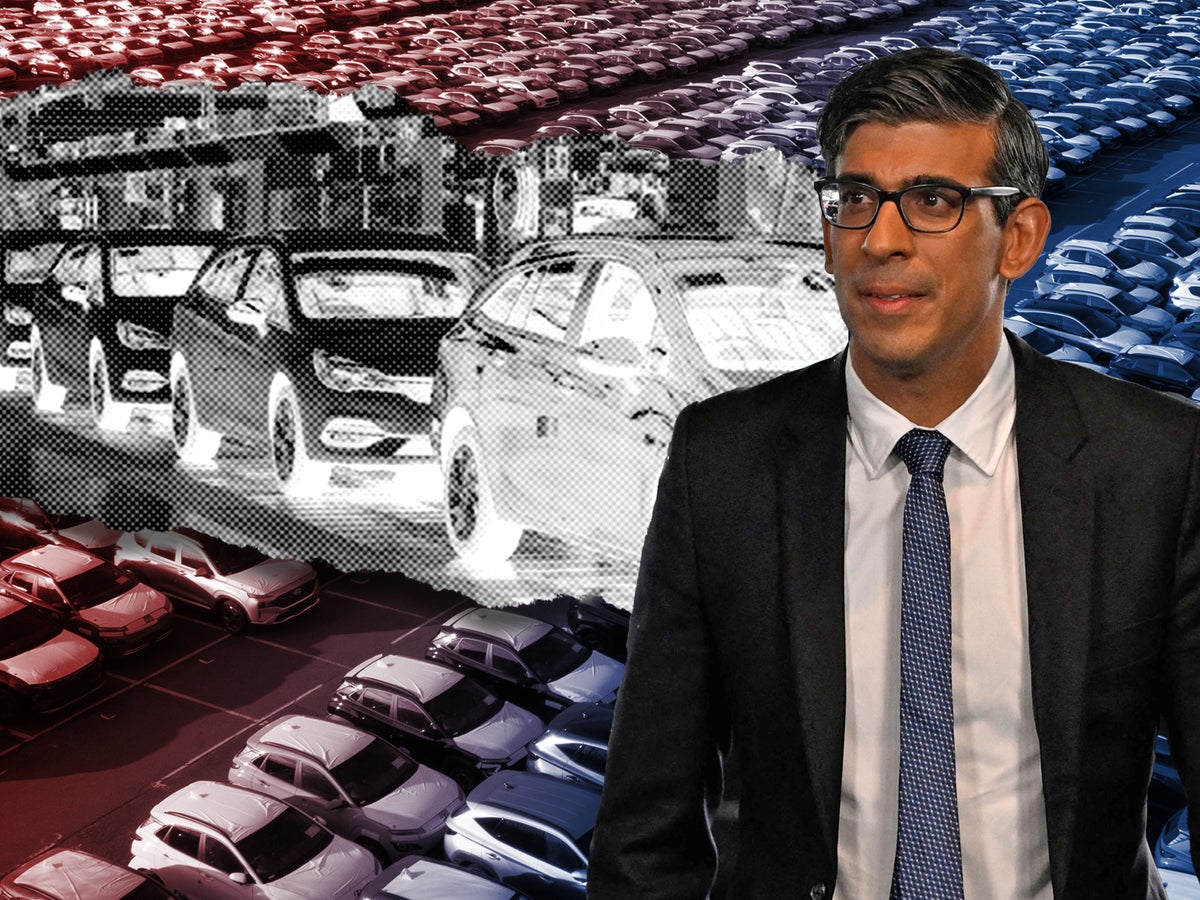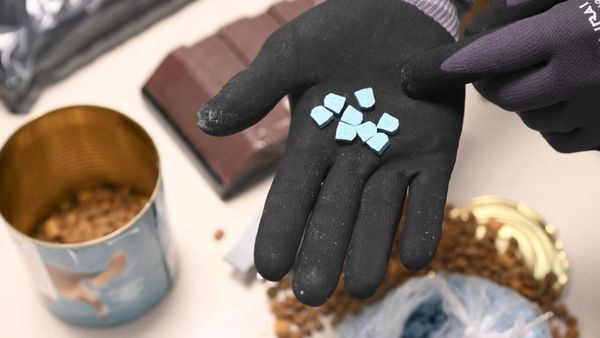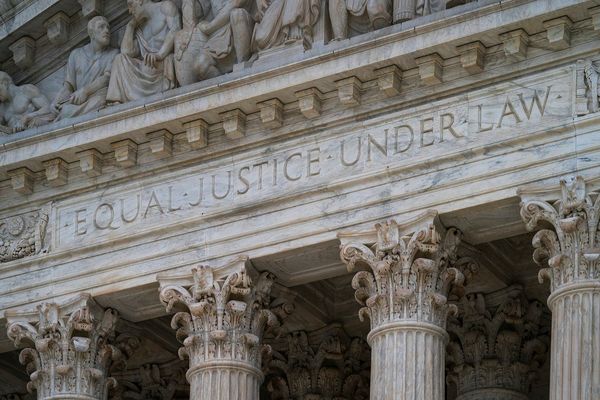
Rishi Sunak’s government is understood to be lobbying the EU to delay a change in manufacturing rules in the Brexit trade deal after Vauxhall’s parent company warned it could shut its UK factories.
Stellantis said it will be unable to keep a commitment to make electric vehicles in the UK without changes to Boris Johnson’s Trade and Cooperation Agreement (TCA).
Business secretary Kemi Badenoch has raised the issue with her Brussels counterpart, and held a pre-arranged meeting with Stellantis chiefs on Wednesday.
She has also raised the motor industry’s concerns about the TCA with chancellor Jeremy Hunt and foreign secretary James Cleverly, according to Whitehall sources.
The government is lobbying the EU to delay a 2024 deadline for changes in how much an electric car should be manufactured in the UK.
It comes as Labour leader Sir Keir Starmer said “we need a better Brexit deal” with the EU to ensure firms such as Vauxhall can continue to operate in the UK.
Stellantis has called on the government to reach an agreement with the EU to maintain existing rules until 2027 – rather than 2024’s planned changes which state 45 per cent of an electric car’s value should originate in the UK or EU to qualify for trade without tariffs.
Without meeting the requirements, cars manufactured in the UK would be hit with a 10 per cent tariff, making domestic production and exports uncompetitive with cars built elsewhere.
Stellantis – the parent of Vauxhall, Citroen, Peugeot and Fiat, which employs more than 5,000 workers in the UK – committed to making electric vehicles at its Ellesmere Port and Luton plants two years ago.
But in a submission to an MPs’ inquiry, the company said the Brexit deal was a “threat to our export business and the sustainability of our UK manufacturing operations”.

It said the rise in the cost of raw materials meant it was “unable to meet these rules of origin”. Part of the problem is that a battery pack can account for up to half a new EV’s cost, with batteries heavy and expensive to move long distances.
A No 10 spokesperson confirmed Ms Badenoch “has raised this already with the European Commission – it’s been raised at official level as well and we hope to come to a resolution with the EU on this”.
Asked whether the January 2024 deadline could be pushed back, Mr Sunak’s spokesperson said: “We’re looking to what solutions we can put in place to a problem that we know exists, I’m not going to get ahead of the conversations we’re having with the EU.”
Rules of origin of electric cars and batteries were among the final parts of the Brexit deal agreed between then-PM Boris Johnson and European Commission president Ursula von der Leyen in 2020.
Transport minister Richard Holden suggested there were “further tweaks” which could be made to the deal.

Mr Holden told LBC: “If more work needs to be done, I’m absolutely certain that the business and trade secretary will do that over the coming days and weeks.”
Sir Keir went further and vowed to renegotiate Brexit, saying that while rejoining the EU was not on the table, “we do need to improve that deal”.
He added: “Of course we want a closer trading relationship, we absolutely do. We want to ensure that Vauxhall and many others not just survive in this country but thrive … so yes we need a better Brexit deal. We will make Brexit work.”
Shevaun Haviland, the director general of the British Chambers of Commerce (BCC), backed Sir Keir’s stance – telling The Independent the trade deal with the EU had to be improved. “Lots needs to be done,” she said.

Andy Palmer, former chief operating officer at Nissan, said the entire car industry in the UK was at risk.
He said it was “impossible to meet local content rules unless you source your battery within the UK or EU” but the “supply chain at the moment isn’t there” in Britain. “The cost of failure is very clear. It is 800,000 jobs in the UK, which are those jobs associated with the car industry.”
Manufacturers said Britain had to attract more battery production to help secure the future of the industry. Chancellor Jeremy Hunt hinted there would soon be a development, saying: “Watch this space, because we are very focused on making sure that the UK gets EV and manufacturing capacity.
But the head of collapsed battery cell manufacturer Britishvolt blamed the government – and tensions between Mr Johnson and Mr Sunak – for its failure. Orral Nadjari said the UK had “lost that window of opportunity” to develop gigafactories.
Denying his claims, a government spokesperson said: “These claims are completely untrue.”
Mike Hawes – chief executive of the Society of Motor Manufacturers and Traders – also called for urgent action. The industry chief said the rules of origin for batteries “pose a significant challenge to manufacturers on both sides of the Channel”, before adding: “A pragmatic solution must be found quickly.”
David Bailey, professor of business economics at the Birmingham Business School, said the trade rules issue was an “existential threat to the UK car industry”.







